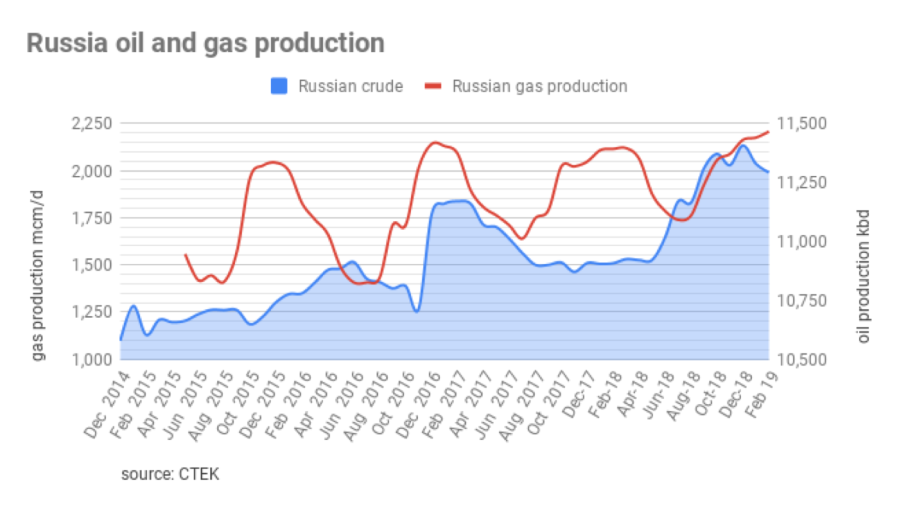OPPORTUNITIES WITHIN A CRISIS
June 4, 2022 | Expert Insights

While universally, every nation is bemoaning the economic and geopolitical adversities generated by the Russia- Ukraine war, there is a slight silver lining in the dark war clouds. As western oil majors exit the much sanctioned Russia, leaving behind their expensive assets and cheap Russian oil and gas, the abandoned resources are ripe for the picking. Those who can dare to face up to western retaliation and punitive sanctions stand to gain a lot in the long term at a very low financial cost today. India, for whom its greatest concern remains energy security, longingly looks at these lucrative opportunities while its strategists make tentative moves to gain from the confusion that reigns supreme at the present moment.
Background
A fact that is rarely being spoken about in western media is the extent of western financial exposure to the Russian oil and gas industry. It was this exposure that perhaps lulled President Putin into opting for the hard option in Russia's simmering dispute with its neighbour Ukraine. Now, most western companies are either opting to sell their stakes and move out or are being pressured by their national governments to close down their Russian operations. Of course, they would like to recover their costs by selling to local (Russian) companies who will end up with assets that they have acquired on the cheap but cannot offload at a profit. Thus, there is a Catch 22 situation for both parties.
As per figures available in the public domain, British Petroleum (BP) is the biggest foreign investor, with a stake amounting to more than $25 billion. With a share of 19.75 per cent in the Russian Rosneft, Russian production accounted for BP's 25 per cent oil and gas production for 2021. BP quit Russia after its subsidiaries dealing with Russian products came under western sanctions.
Other European powers are not far behind. German-owned BASF is one of the primary investors in the now-suspended Nord Stream 2 gas pipeline and stands to lose a whopping amount. Almost one per cent of this chemical giant's earnings came from its Russian subsidiaries. Another investor in the Nord stream 2 project is the French company Engie. Italian Eni shares a 50 per cent stake with Gazprom on the Blue Stream pipeline pumping gas to a hungry Turkish market. Norwegian state-owned Equinor has minority stakes in at least three Russian oilfields and used to send its arctic hardened oil workers to Russia to help in establishing new drilling sites. The Anglo-Dutch Shell is one of the leading foreign investors in Russia with a 27 per cent holding in the Sakhalin -2 project and is a co-financer of the now-defunct Nord Stream 2.

Analysis
While there have been no announcements in the Indian media, the Russian news channel has been reporting that India is looking to "scoop up" BPs stake in Rosneft. Apparently, Indian oil majors like ONGC Videsh (OVL), Indian Oil, Bharat Petro Resources, Oil India and GAIL are all in the fray. OVL may lead the pack with a 30 per cent stake held earlier by Exxon Mobil in Sakhalin 1, where it already holds a 20 per cent stake. The rush to acquire these shares is because, obviously, they are being offered at a difficult-to-resist-discount price, seeing that there are few major players up to facing the risks involved.
There are, of course, risks involved. The main concern will be western sanctions if it is felt that India is scheming to help its Russian friend around the sanction impasse and make a killing in the bargain. Furthermore, Russia is a war zone, and there is no guarantee that the war will not expand. In case, at some juncture, the NATO gets involved, all Russian oil infrastructure will be fair game for the combined air power of the western military machine.
Not surprisingly, the Indian official stance is muted and non-committal. Al Jazeera quoted the Indian foreign ministry spokesperson as saying, "Our effort has been to see how we can stabilise economic transactions, economic engagements with Russia in the current context ... There are, of course, constraints, there are sanctions by some countries, and we will have to kind of work through that.” The Indian Finance Minister, Nirmala Sitharaman also went on record stating that "a whole lot of factors" will impinge upon the final decision.
Assessment
- It is doubtful that Russia would be in such a hurry to sell its precious oil and gas assets at much of a discount, especially when the oil and gas embargo has been excruciatingly slow in taking effect. At best, India can replace some of the western oil giants, but this will come at a high cost, both economic and geopolitical.
- While India may consider boosting its strategic oil reserves with cheap Russian oil available at discounted prices, getting into the Russian oil and gas business in a big way during these tense times is taking the risk to another level. A lot of fine negotiations will have to be navigated through, both with the sellers and India's trade partners in the west, so that the deal does not backfire. India should allow other members of the BRIC group to go ahead first and test the waters before it takes the plunge.








Comments